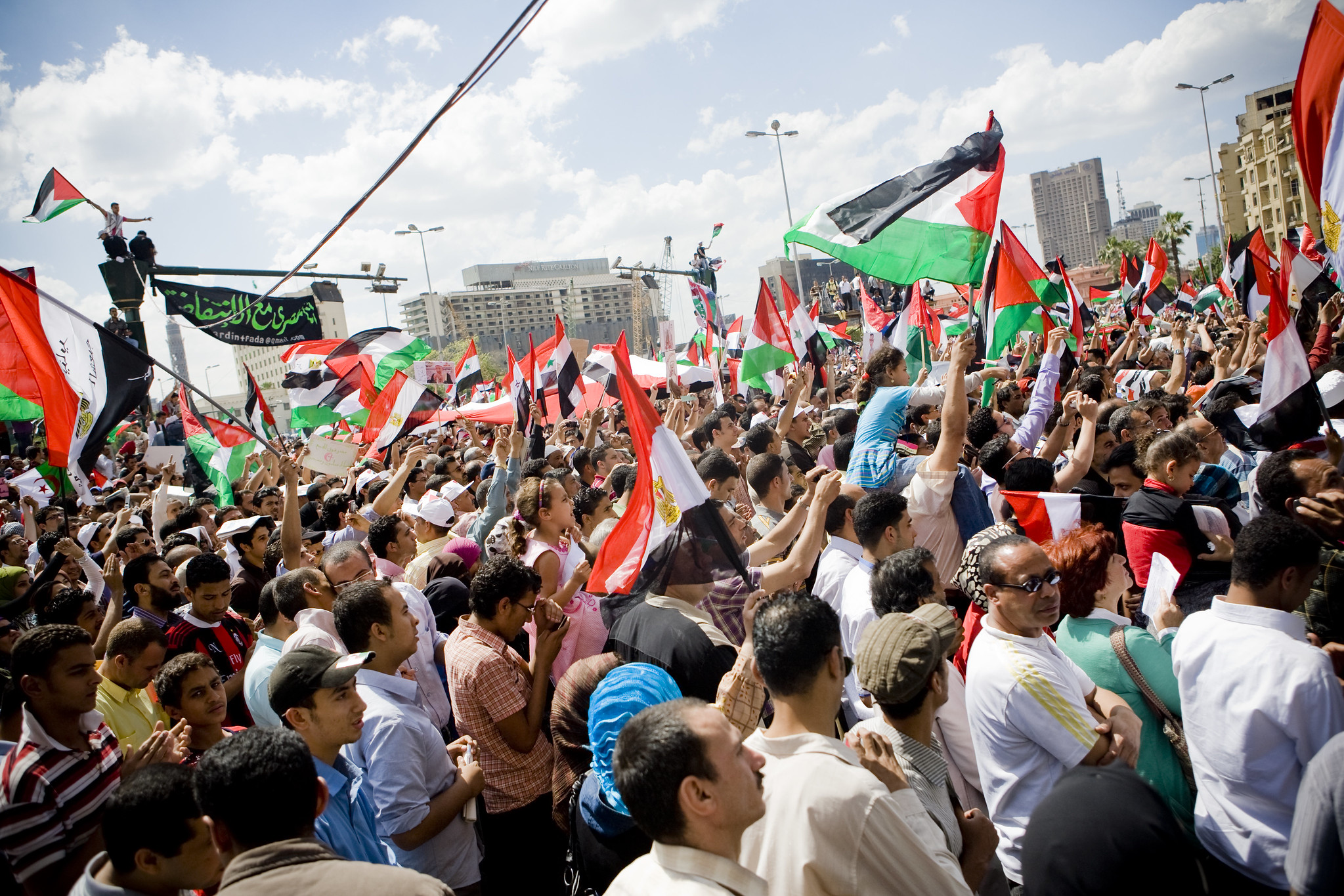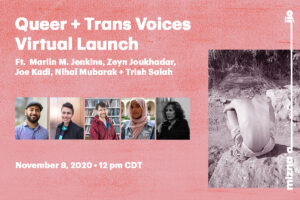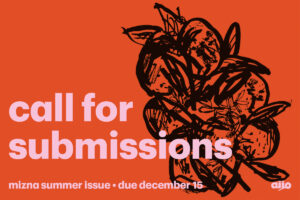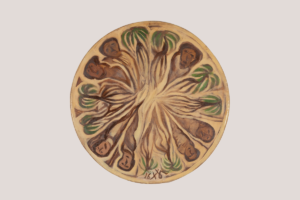
March 13, 2024
On Execution
by Abdelrahman ElGendy
Six months into the genocide in Gaza, the latest acceleration of ethnic cleansing and settlement in Palestine, and this is where US literature and media institutions have left us: an organization we had considered to be an ally published an essay amounting to settler apologia and is, as a result, imploding before our eyes as more than thirty principled volunteer staff members have resigned in solidarity; PEN America, which in early February dragged beloved Palestinian author Randa Jarrar out of an event that platformed pro-Israel and pro-genocide voices, published a tweet condemning the retraction of the aforementioned essay while they continue to remain silent as Israel systematically targets Palestinian journalists, poets, writers, intellectuals, and universities in Gaza; silence from so-called progressive presses, including those profiting from Palestinian poetry right now, refusing to commit to PACBI, or even call the current state of affairs a genocide. When PEN America states that good literature should “build bridges,” do they mention that their organization’s bridges are built atop Palestinian corpses? When war-funded writers and platforms such as The Atlantic, whose editor-in-chief used to serve in the Israeli military, insist on normalizing settler perspectives through think-pieces, we are left to wonder who is being systematically and linguistically excluded from their definition of human? To be clear, none of this is metaphorical. Palestinians are living and dying, as the failures of Western empathy continue to manifest in our bodies every day.
This is the landscape into which Abdelrahman ElGendy stakes his brilliant and necessary intervention. Invoking the weight of his personal history of a six-year political imprisonment in Egypt and thinking alongside Solmaz Sharif’s work on the failures of Western empathy, ElGendy asks necessary questions of a society that can only witness Palestinian suffering, while being fundamentally incapable of allowing their empathy to extend to the political action that Palestinians demand. I could not be more grateful to be publishing such a fearless essay that dares to love Palestinians. May we all have the clarity to alienate the so-called allies in order to build alongside accomplices.
—George Abraham, Mizna executive editor
In the wake of these currents, we—namely: Palestinians, their Arabic-speaking kin, and comrades in the struggle for liberation from white supremacist Western hegemony—stand to bear witness and act. It is within this rhizome of love linking us and alienating our executioners that we now situate ourselves. A love that is enraged, engaged, and revolutionary.
—Abdelrahman ElGendy
On Execution
I
Have you thanked your executioner today?
In early 2023, a US human rights NGO invited me to speak at a conference about state violence and political incarceration in Egypt. As a former six-year political prisoner in my country, I discussed my talking points in a Zoom meeting with a well-meaning American, the head of Egypt’s file in the organization. I explained what I deemed critical for this American audience to hear: the prevalence of state-manufactured archival silences in Egypt, the urgency of carving avenues for our counter-narratives, and the need to challenge the stories in the Western imagination about our region.
Midway through my rundown, the well-meaning American interrupted me, apologizing profusely for what he acknowledged might be an irritating request. While he liked “all this” a lot, he suggested I also “lean more into the abuse.”
“Many in attendance will want to hear about that,” the well-meaning American said, by way of explanation.
I stammered, facing the ultimatum I would encounter repeatedly in this country: parade before the audience scenes of the batons that cracked our bones, the curses that peeled our skins, and the boots that stomped on our bare backs. Satiate their appetite for educational discomfort in consumable packages, so they could dab their cheeks dry and leave the room feeling transformed. In exchange, I’d gain a semblance of a platform, the empathy of the American audience, and perhaps smuggle a portion of my message across. The other choice: reject both the performance and the access to its audience.
I often recall this exchange, in this hour of genocide, as I revisit Solmaz Sharif’s poetry and gravitate, time and again, toward one poem, “Social Skills Training.”
The term typically refers to a type of therapy for developmental challenges to enhance human social skills. In Sharif’s poem, she repurposes the concept to illustrate how we are often expected to modify our tone and language to appear “better subjects, more pleasant to the state.”
Solmaz, have you thanked your executioner today? Sharif ends her poem.
To execute: to carry out in a planned manner; or, to perform. Also: to put to death with a legal order.
The poem haunts me as I witness the US-funded genocide of my kin in Gaza. I observe the theater of suffering we’ve staged calling for empathy: A collage of limbs, torn. Images of homes, rubbled. Clips of babies, charred. I think about this duality of execution we cannot escape: performance and death. Executing for the executioner and being executed by them.
Can you lean more into the abuse? The well-meaning white American had asked.
What I now hear in my recollection, please, don’t forget to thank your executioner.
At the time, I acquiesced. It was my first year in the country, and I hadn’t yet learned, in this new context, how to recognize the transaction of execution in exchange for empathy and its proponents as an extension of imperial violence.
In various interviews, Sharif expresses her discomfort with this very concept, empathy.
In her poem “Dear Aleph,” she says:
Empathy means
laying yourself down
in someone else’s chalklines.
Here, empathy becomes a fleeting gesture, invoked when an “ally” wishes to momentarily experience the suffering of the “other” to alleviate their own guilt, to enter and exit and still go grocery shopping undisturbed, as Sharif puts it.
In spaces that seek to decenter Western hegemony, empathy sometimes serves as shorthand for a certain emotional state. Sharif, in a moment of clarity, recognized that the specific word she was searching for—whenever she reached for empathy—was in fact “love.”
Over the past four months since October, Palestine has shattered the gray area that empathy inhabits. After the recent official US decision to cease funding for the Palestinian refugee aid agency, UNRWA—a move mirrored by several Western nations, most with a colonial history—Palestinian surgeon Ghassan Abu Sitta coined the term The Axis of Genocide for this group of countries. I find this term an appropriate lens through which to extend to this gray area of empathy. As the ambiguity that once ensured a safe proximity to (and thus, a safe distance from) oppressors and oppressed alike has become neither safe nor advantageous, a grand axis has been drawn—one must now choose their alignment.
In the wake of these currents, we—namely, Palestinians, their Arabic-speaking kin, and comrades in the struggle for liberation from white supremacist Western hegemony—stand to bear witness and act. It is within this rhizome of love linking us and alienating our executioners that we now situate ourselves. A love that is enraged, engaged, and revolutionary.
The lines to which our tongues once adhered, the sanitization of language, and the illusion of attainable humanity within this structure—they’ve all been buried, too, under the rubble.
II
Lord Judge, have I executed well?
Last summer at a literary event, I listened to the organizers begin the evening with land acknowledgments. Part of me grasped the intention behind the gesture, but in my head, an itch burned. I sensed a discomfort at the magnitude of the horrors encapsulated in the one-minute statement, juxtaposed against the festive atmosphere, the calculated silence awaiting the moment to pass for the night to begin. The source of tightness in my chest struck me as I watched: this is what American liberals hope for Palestinian solidarity to become.
Many indigenous communities have criticized the burgeoning tradition of land acknowledgments, calling it a tool of liberal self-assuagement. Even when done with good intentions, it tends to obscure indigenous communities from public consciousness and depict them as mythical, prehistoric entities, rather than present groups actively fighting to reclaim their sovereignty. I find these sentiments inseparably linked to what we are witnessing as this genocidal campaign on the bodies of Palestinians continues in Gaza.
I sensed a discomfort at the magnitude of the horrors encapsulated in the one-minute statement, juxtaposed against the festive atmosphere, the calculated silence awaiting the moment to pass for the night to begin. The source of tightness in my chest struck me as I watched: this is what American liberals hope for Palestinian solidarity to become.
Since the colonial project began its massacres, liberal allies have been squirming as they await their beloved phase of retroactive solidarity. Meanwhile, they lament for “peace.” As in, for Palestinians to perish silently by means of ethnic cleansing and genocide, maintaining a perfect victim profile even in death. They hope that one day, they can stand on land soaked with Palestinian blood and recite their somber acknowledgments.
Retroactive solidarity demands no sacrifice. It relieves “allies” of the cognitive dissonance required to maintain their self-respect as genocide unfolds in real time. It skips forward to when they can package their allyship in neat statements or donations thrown at 501(c)(3) nonprofits.
Since the masks of liberal friends have dropped, I’ve gone back to the vital distinction between an ally, whose solidarity often forms part of their online persona and public brand, and an accomplice, who stands by the oppressed, complicit in the pursuit of justice, bearing alongside them the repercussions of refusing to execute.
Solidarity and action within the US in support of Palestinians have been resulting in severe backlash—from firing, targeting, and attacks on college campuses, to banishment from literary circles. The empire’s tolerance, even for performative solidarity, has dissipated. With such risk attached to allyship, it has become painfully clear on whom Palestinians can lean—not many.
Liberal imagination is confined by the empire’s barbed wire. Liberals seek only to expand its boundaries and rearrange subjects within its borders. Palestinian liberation targets the very premise of the colonial equation: it aims to dismantle its self-perpetuating structures. The Palestinian insistence on existing—loudly and unabashedly—therefore becomes inconvenient for liberals. It rejects subjugation as a precondition for conversation, rattles the status quo beyond the executioner-approved limits, and forces “allies” into a hard, unsettling look in the mirror.
Palestinians teach us to acknowledge only those who stand to bear the personal and professional costs of complicity, whose shoulders brush ours in actions on the streets and who even share the same pair of handcuffs when necessary. Those who never demand we execute well and understand that land acknowledgment means nothing if not hand-in-hand with land back. Those who see how our battle for liberation, despite its many faces, is one.
We no longer pursue, or partake in, empathy. Empathy is the executioner’s word.
Our word is love.
III
History says we forgave the executioner.
But history, as Sharif also tells us, is a kind of study. Its letters depend on the hand that gripped the pen.
Only weeks ago, we commemorated the thirteenth anniversary of our crushed Egyptian revolution. I remember the sting of tear gas, the crack of bullets, the fallen martyrs, and the child straddling his father’s neck, chanting, “‘Aish, hurreyya, ‘adala igtama’eyya!”—bread, freedom, social justice.
What I also remember: when millions of Egyptians took to the streets, toppling decades of oppression, the first focal point their eyes turned to was Palestine.
I remember Tahrir Square brimming with Palestinian flags as millions pledged allegiance to their colonized kin. I remember protesters storming the colonizer’s embassy in Cairo, a young man, Ahmed El-Shahhat, scaling the wall, tearing down and burning the colonizer’s flag, and hoisting Egypt’s in its stead—and the crowd below roaring. I remember 2012, when the Rafah border flung open, and a tide of Egyptian convoys and activists ebbed and flowed, standing shoulder-to-shoulder with their Palestinian siblings amid the bombardment.
I remember all of this, and I remind myself every day: the obliteration of our revolution—on the streets of Egypt, in the hearts of Egyptians, and in future generations—was imperative for the empire. It would have rendered endeavors like the ongoing genocide unfeasible, so it had to be quashed and its history eradicated. I remind myself: our liberation and that of the Palestinians are inextricable.
Our oppressors understand this well. The emperor, the hangmen, the henchmen, and every gear comprising the empire’s body—they know that a threat to one is a threat to all. Their systems of oppression, too, are codependent. They fear nothing more than the revived memory that another world was—and therefore, is—possible.
The Palestinian insistence on existing—loudly and unabashedly—therefore becomes inconvenient for liberals. It rejects subjugation as a precondition for conversation, rattles the status quo beyond the executioner-approved limits, and forces “allies” into a hard, unsettling look in the mirror.
Today, the history of the empire stretches across a spectrum. In the version of history it holds on its right end, the end aligned with Zionism and its settler-colonial project, we—Palestinians and their Arabic-speaking kin—exist as an inherently savage populace to be subdued. On its liberal end, it suggests we had already broken bread with our executioners, forgiven, and forgotten—a smoothed-over narrative that serves to comfort its holders. Across the continuum, we remain muzzled, only to be spoken for and about.
Edward Said, in his famous article, “The Permission to Narrate,” contends that the power to tell their own history has been largely denied to Palestinians by the global community and media. Said emphasizes the need for channels within this discourse for the Palestinian narrative. These days, I believe an even more radical shift in attitude is taking place in Palestinian discourse toward Western hegemony.
We have spent long months holding masterclasses to explain and justify our chants, engaging those who regurgitate their interpretations of our own language back at us, and taking up the Sisyphean task of refuting and debunking. We have been imploring the world to recognize our suffering, grant us humanity. Until we stopped. As our pleas found deaf ears, our questions changed, hardened.
We still seek the narration but not the permission. We are coming to embrace the truth that no number of history lessons, human rights reports, and graphic footage can change this basic truth: white Westerners, barring those who have undergone radical unlearning and reeducation, identify more with our colonizers.
With this sharpened lens, when we are asked to lean into the abuse, to perform, we now pose the critical questions: For whom? For what purpose? At what cost? Once we are handed a microphone, we calculate. How can we, rather than water down our words to maintain the platform we’ve been given, disrupt until either we deliver our message in full or the microphone is snatched away?
The path forward is not clear. It is filled with suspended dust, bloodied debris, and seared flesh. Yet, it cannot begin until we relinquish the illusion that the current world order, rooted in our execution and with full legal backing, will yield the key to our liberation—all of us who stand for a world outside a white supremacist Western hegemony—if we ask nicely enough.
Let us listen to the heaviness on our tongues every time we appeal for our humanity.
Let us understand that revolution, like love, is a perpetual act of remembrance.
Let us never thank our executioners.
Let us never execute well.
Header photo was taken by Hossam El-Hamalawy in Tahrir Square on May 13, 2011, where, in his words, “thousands of protesters rallied against religious sectarianism and in solidarity with the Palestinian intifada.”

Abdelrahman ElGendy is an Egyptian writer whose work engages with counternarratives of history as a form of resistance to erasure. A Dietrich Fellow at the University of Pittsburgh’s Nonfiction Writing MFA, his work appears in the Washington Post, Foreign Policy, AGNI, Truthout, Mada Masr, and elsewhere.

Toward a Free Palestine: Resources to Learn About and Act for Palestine
We are proud to present this text as part of a list of resources to take action for and learn about Palestine, as well as works by Palestinian artists, writers, activists, and cultural workers.










